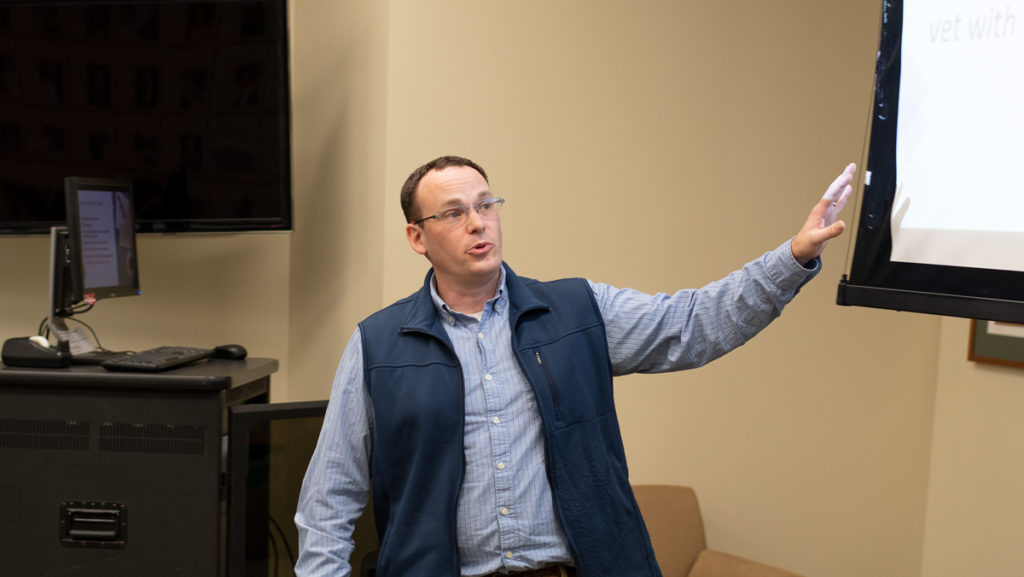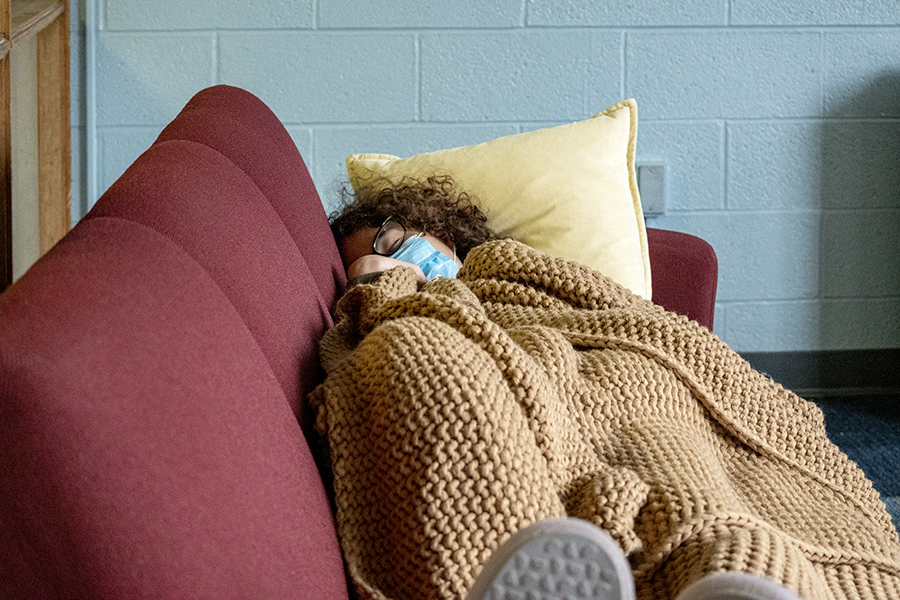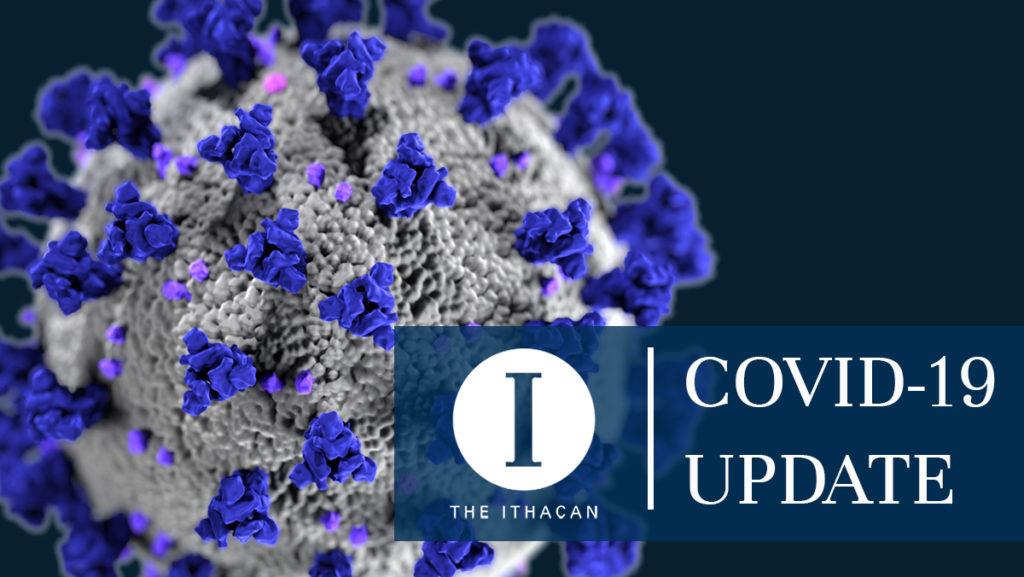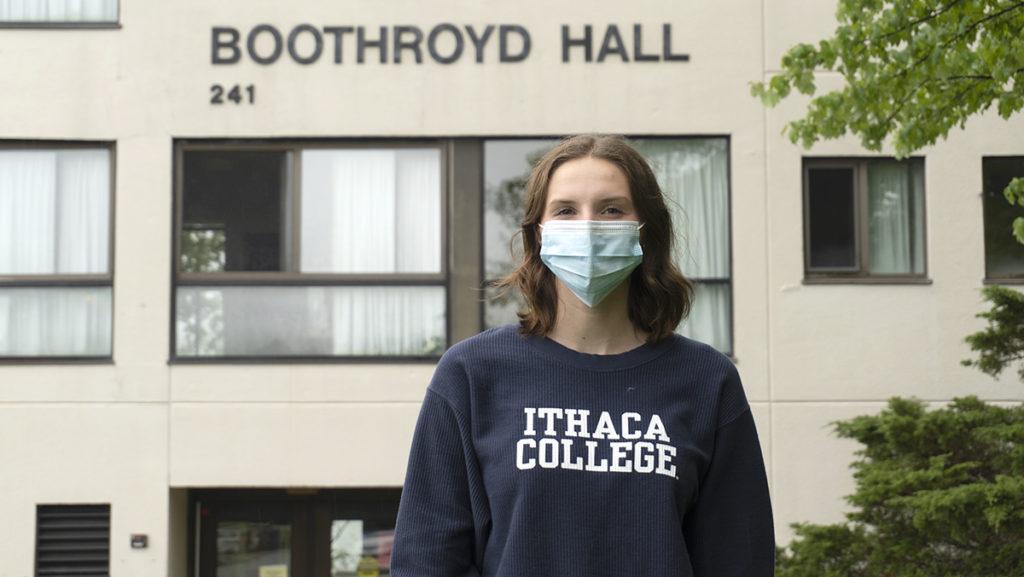The Ithaca College Faculty Council discussed plans for how the college could respond to a potential shutdown because of the new coronavirus at its March 3 meeting.
Jeane Copenhaver-Johnson, associate provost for academic programs, and La Jerne Cornish, provost and senior vice president for academic affairs, prompted a discussion about emergency plans in response to COVID-19. The group discussed how to shift to online learning if the campus is shutdown and how to address students who are abroad and students who may be traveling over spring break. The discussion referenced recommendations from the Centers for Disease Control and Prevention (CDC).
The council also continued its discussion on the revisions to the Integrative Core Curriculum (ICC). The evaluation proposal will be completed at the end of March, said David Gondek, associate professor in the Department of Biology.
Cornish said the college needs to be prepared for the worst when it comes to COVID-19 without creating a panic.
“We don’t want to expect the worst,” Cornish said. “But it’s a good idea to prepare and try to deal with some of these things on the front end so we aren’t caught off guard.”
Many colleges are preparing to move online in case of a shutdown, something Syracuse University has already done after shutting down programs abroad in Italy. Copenhaver-Johnson said Ithaca College is in the process of creating a platform for students and faculty to continue classes online in case there is a shutdown. The platform is not completed yet, she said.
Copenhaver-Johnson said some students at the college who are abroad have chosen to not return to the United States and are continuing classes remotely.
Copenhaver-Johnson said the college outlined the expectations for a 14-day self–isolation period for anyone who is returning from a place that is identified as a Level 3 CDC travel advisory location before returning to the campus after spring break. Level 3 CDC locations include South Korea, Iran, China and Italy. This information was also stated in an email to the college community March 4.
The college also has those protocols in place for any students returning to the London Center from a Level 3 area. Copenhaver-Johnson said the college has been in contact with those students to make sure the proper precautions and procedures are followed.
“We have been working nonstop with students and families of students who are abroad,” Copenhaver-Johnson said.
Following the COVID-19 preparation, the meeting then moved into continuing discussions about reforms to the ICC. The proposals that were discussed were first mentioned at a previous meeting. Gondek presented on the ICC and asked for faculty members’ input on the potential reforms.
One of the reforms discussed was a proposal to create a course in between freshman seminars and capstone courses to help connect students’ overall educational experience within the different perspectives to their overall ICC themes, Gondek said.
“Right now, we’re at the point where we’re developing these proposals and want your [Faculty Council’s] input,” Gondek said. “This is early in the process, and we want feedback.”
Jason Freitag, associate professor in the Department of History, said he is not sure it is the best idea to put all of the proposals into one because it could lead to the entire proposal being voted down.
“I could see some of the pieces being more controversial than others,” Freitag said. “If I had a whole proposal in front of me, and there was one piece I didn’t like, I might be very tempted to vote the whole thing down, undoing a lot of the work that might be useful.”
Gondek said the plans will still most likely be presented as bundles because the solutions are all interdependent on one another.











